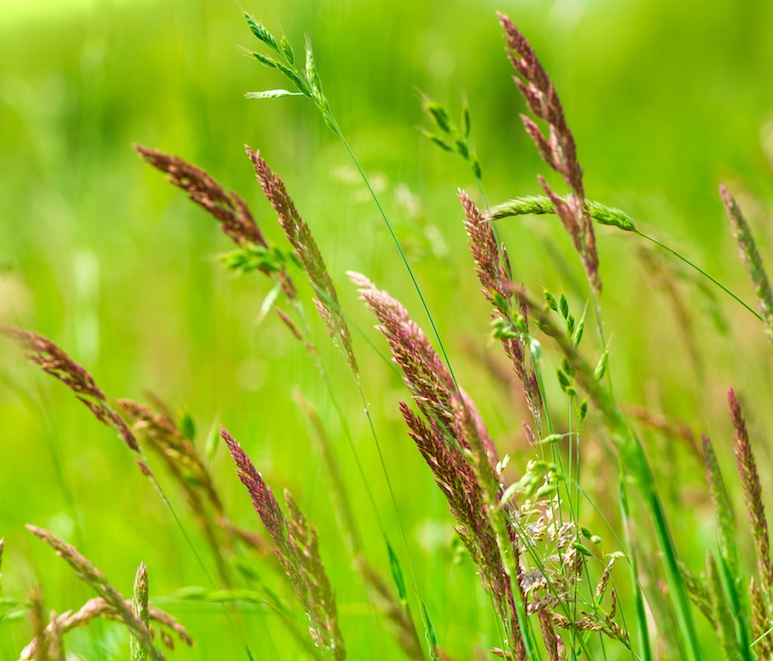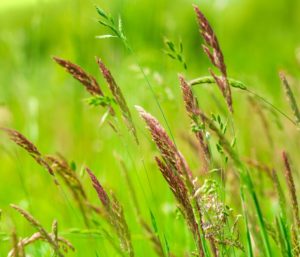August 2019 Audre’s Book Shelf – Braiding Sweetgrass

August 2019 Audre's Book Shelf - Braiding Sweetgrass

Audre's Bookshelf
Braiding Sweetgrass: Indigenous Wisdom, Scientific Knowledge, and the Teachings of Plants
by Robin Wall Kimmerer

|
Braiding Sweetgrass is the second kind of book. The author, Robin Wall Kimmerer, skillfully "braids" the story of the many layers of her life...the deep and multiple understandings of a trained botanist, a member of the Citizen Potawatomi Nation (which honors the notion that plants and animals are our oldest teachers), a mother, seeking to educate her daughters in the old ways amidst the pull and promise of modern society, and a professor, imbuing her students with, not only facts, but the life and legacy of plants like Sweetgrass.
The author describes this book as an offering, "a braid of stories meant to heal our relationship with the world. It is an intertwining of science, spirit and story -- old stories and new ones that can be a medicine for our broken relationship with Earth, a pharmacopoeia of healing stories that allow us to imagine a different relationship, in which people and land are good medicine for each other." Those of my readers who have studied Aromatherapy with Wisdom of the Earth can well identify with this philosophy, as it is one that has guided our company from the very beginning.
Early in Braiding Sweetgrass, Robin talks about the sad and sordid history of the Indian Boarding Schools established and run by the US government between the mid-1800s and the early 1970s. She relates the devastating effect that losing their native language had upon the children and families during this time, and shares a story about a man who, when he was young, was hidden from the Indian agents when they came to take the children, and thus was raised "calling the plants and animals by the name Creator gave them".
Committed to learning her native language before it was totally lost, Robin shares an experience from her language class in which every fluent speaker from her tribe would be there as a teacher. One gentleman (at seventy-five, the youngest of the fluent speakers) began speaking to the students only in Potawatomi. "He began solemnly, but as he warmed to his subject, his voice lifted like a breeze in the birch trees and his hands began to tell the story. He became more and more animated, rising to his feet, holding us rapt and silent although almost no one understood a single word. He paused, as if reaching the climax of his story, and looked out at the audience with a twinkle of expectation. One of the grandmothers behind him covered her mouth in a giggle and his stern face suddenly broke into a smile as big and sweet as a cracked watermelon. He bent over laughing and the grandmas dabbed away tears of laughter, holding their sides, while the rest of us looked on in wonderment. When the laughter subsided, he spoke at last in English: What will happen to a joke when no one can hear it anymore? How lonely those words will be, when their power is gone. Where will they go? Off to join the stories that can never be told again.
One of the most powerful gifts in this book replete with wisdom, insight and practical advice, is the emphasis on what the author calls the Honorable Harvest. She tells many stories about the concept of "asking permission" from the plants before harvesting them, and emphasizes that the Honorable Harvest is more about the "dos" than the "don'ts". She explains how, in both harvesting and hunting/fishing, the Native cultures emphasize not taking the first you see (there may not be more), not taking all (leave for others, including the animals), and assuring there is enough for reproduction for the future. According to Robin, "The guidelines for the Honorable Harvest are not written down, or even consistently spoken of as a whole -- they are reinforced in small acts of daily life. But if you were to list them, they might look something like this:
Know the ways of the ones who take care of you, so that you may take care of them.
Introduce yourself. Be accountable as the one who comes asking for life.
Ask permission before taking. Abide by the answer.
Never take the first. Never take the last.
Take only what you need.
Take only what is given.
Never take more than half. Leave some for others.
Harvest in a way that minimizes harm.
Use it respectfully. Never waste what you have taken.
Share.
Give thanks for what you have been given.
Give a gift, in reciprocity, for what you have taken.
Sustain the ones who sustain you and the earth will last forever.
These words, and more importantly, these practices (as each is truly a decision and a resulting action), are simple, and yet profound. In this time of environmental and social chaos, they offer a vision and a roadmap of what most humans are not doing, and how most humans are not living, as well as a solution that is ancient and proven.
Sweetgrass (Hierochloe odorata), which literally means fragrant, holy grass, has been used for eons for its antibacterial, purifying and insect repellant properties; emotionally, it is calming, relaxing and up lifting. Spiritually, Sweetgrass has been historically used for smudging, cleansing the energy of negativity and/or calling in the sacred. The essential oil is extremely rare, and it is the hydrolat from this beautiful plant that is most often commercially available.
I hope these snippets from this amazing book will touch your heart as they did mine. I truly believe the study of essential oils is, like Robin described her book, made up of science, spirit and story. I would like to invite you to send me a story of how the Honorable Harvest philosophy operates in your life, and the effect you feel that it has had upon the quality of your life. This is a broad subject; it can include communicating with the plants, your approach to growing, harvesting, or distilling plants, an insight or spiritual experience you had while working with plants/essential oils, etc. I will share some of these stories in a future Essential Thought, and I will be gifting a 4 oz bottle of our exquisite Sweetgrass Hydrolat to one of those who submits his/her story.
Please share this E-news with others who may enjoy knowing about this beautiful book that honors and celebrates our relationship with the rest of the living, sentient world.
Love, Audre

